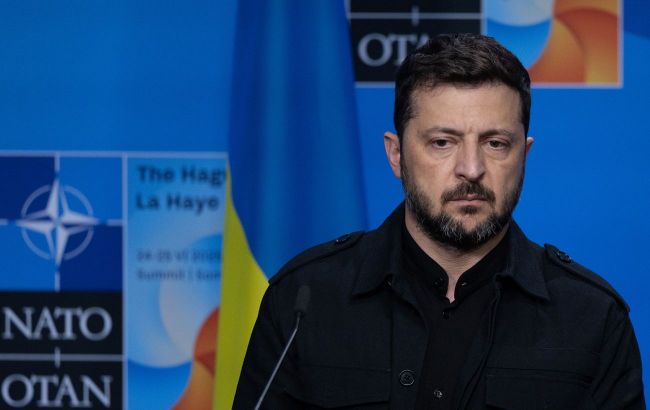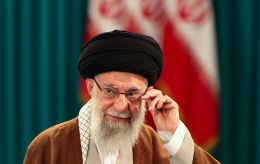Tribunal on Russian aggression: Ukraine and Council of Europe to sign historic agreement
 Photo: President Volodymyr Zelenskyy (Getty Images)
Photo: President Volodymyr Zelenskyy (Getty Images)
President Volodymyr Zelenskyy and the Secretary General of the Council of Europe, Alain Berset, will sign an agreement on the establishment of a Special Tribunal to prosecute crimes of aggression against Ukraine in Strasbourg, according to the press service of the Council of Europe.
According to the agency, the Committee of Ministers of the Council of Europe today authorized Secretary General Berset to sign the agreement, which includes the Statute of the Special Tribunal.
"Justice for Ukraine will not wait," Berset said ahead of tomorrow’s signing.
According to him, this is the first time a special international tribunal is being created to prosecute crimes of aggression.
"Established within the framework of the Council of Europe, this tribunal will hold to account those who have used force in violation of the UN Charter, applying international law without double standards and reaffirming that Europe’s security will not rest on silence or impunity — but on law, principle, and action," he said.
It is currently known that the Committee of Ministers has completed work on the legal texts underlying the Special Tribunal. It has also completed preparatory work on an extended partial agreement that will allow a wide range of parties, including both members and non-members of the Council of Europe, as well as the European Union, to support and assist in the management of the tribunal.
What is known about the tribunal
The Special Tribunal will be established within the framework of the Council of Europe to hold the highest-ranking officials accountable for the crime of aggression against Ukraine. This refers to the unlawful use of military force against another state, which is a serious violation of the UN Charter.
Currently, the International Criminal Court has the authority to investigate only war crimes, crimes against humanity, and genocide in Ukraine. However, due to limitations of its jurisdiction, it cannot prosecute the specific crime of aggression. The new tribunal is intended to close this gap in international justice.
"The key legal documents underpinning the Special Tribunal can now be considered by parties interested in joining the Enlarged Partial Agreement. The Committee of Ministers will continue its discussions on this issue once states have indicated their desire to participate," the statement said.
Among the Council of Europe’s priorities regarding Ukraine, which has been a member since 1995, are the creation of a Damage Registry that has already received over 34,000 claims, as well as work on launching a Commission to review these claims and the Special Tribunal to investigate the crime of aggression.
The European Court of Human Rights remains the only international judicial body currently examining cases related to human rights violations connected to Russia’s full-scale aggression against Ukraine.
Special tribunal on Russian crimes
At the beginning of May, a meeting of foreign ministers from countries supporting the creation of a special tribunal on the crime of Russian aggression against Ukraine took place in Lviv. Following the meeting, the participants reached a political agreement to launch such a mechanism.
The main goal of the tribunal is to hold Russian President Vladimir Putin and other high-ranking officials accountable for unleashing the war against Ukraine.
The International Criminal Court (ICC) does not have jurisdiction over these crimes because Russia is not a party to the Rome Statute, and Ukraine was not a full member at the time of the invasion.
Therefore, the new tribunal fills the legal vacuum by enabling the investigation and prosecution of those responsible for aggression.

